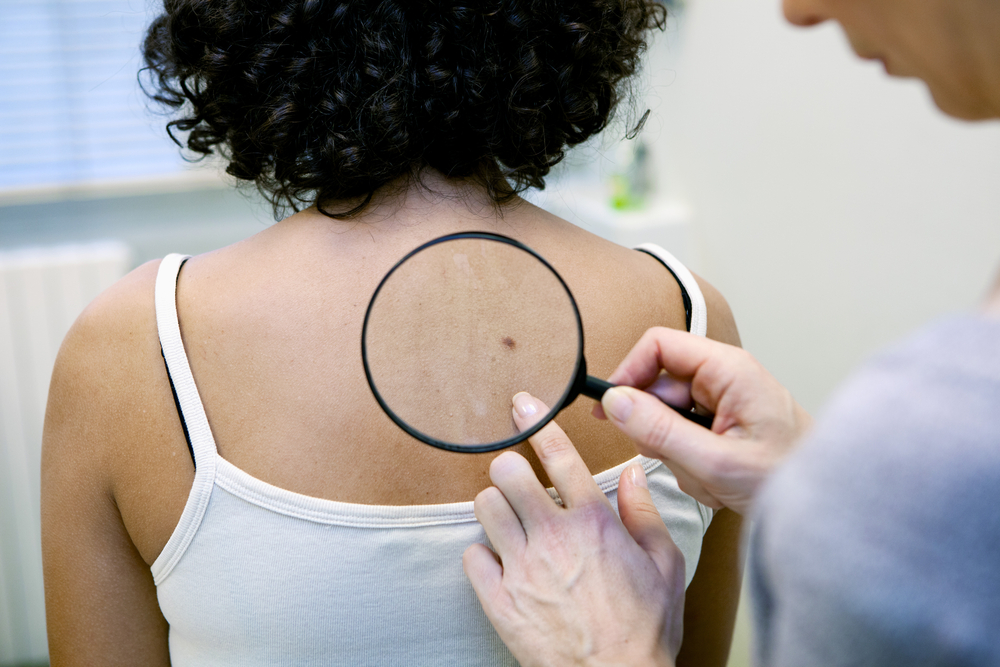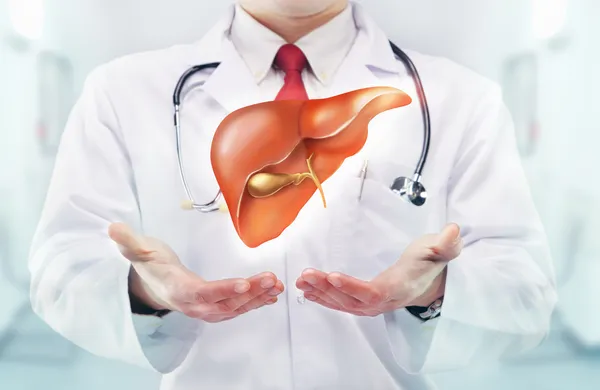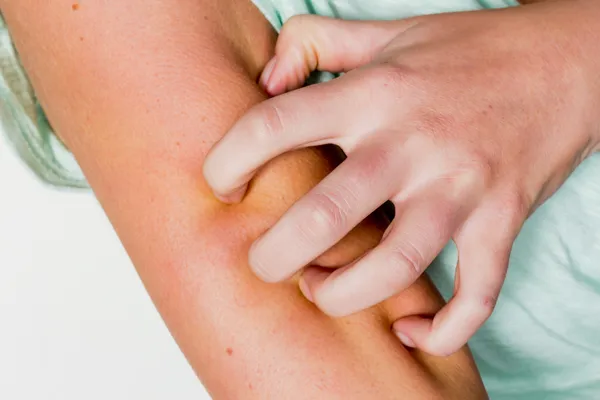When you think of skin cancer, you probably picture telltale lesions on the skin of a patient (which aren’t always cancerous, by the way). However, those with skin cancer may experience a host of other health problems that might not be obvious to them or a medical professional without an exam.
Cancer is cancer – meaning although each type tends to affect a certain organ first (in this case the skin), it can affect your overall well-being. Here are 12 symptoms that may be related to skin cancer, especially if you have physical signs like sores or lumps – but get checked out by a doctor either way…
1. Swollen Liver
This is one you can’t see from the outside, but is associated with melanoma, a type of skin cancer (it’s often referred to as metastatic melanoma if it has moved to other locations in your body).
Sources point out this can lead to pain, which will prompt you to see a doctor to pinpoint the cause. However, there are a number of other causes of an enlarged liver including liver disease, hepatitis, and genetic conditions such as Wilson’s disease, explains the Mayo Clinic.
2. Trouble Breathing
Skin cancer can affect the lungs, which can make it difficult for the patient to catch their breath in some cases. The American Cancer Society notes shortness of breath can be from a tumor, but also from cancer treatments, allergic reactions, or even stress.
The society advises you to stay calm if you’re having trouble breathing, and to sit up or raise your body to a 45-degree angle. Take any medicines prescribed for breathing assistance, and try inhaling deeply through your nose and exhaling through tightened lips. If you can’t seem to regain normal breath, or you’re experiencing dizziness, call 911, it adds.
3. Itching or Numbness
Cancer.net said some forms of skin cancer could spread along the nerves, leading to some unusual sensations in your skin (or no sensations at all). “If this happens, it can cause itching, pain, numbness, tingling, or a feeling like there is ants crawling under the skin,” notes the source.
If you notice changes in your skin along with these sensations, then it’s important to consult a doctor, notes the source. It may be non-melanoma skin cancer, or it might be a completely unrelated health condition, it adds.
4. Fatigue
This is another symptom that the American Cancer Society says is common to many cancers. Fatigue is not just being a bit tired from a long workday – it’s “extreme tiredness” that can impact how you function from day to day, notes the source.
The reason cancers can cause you to feel very tired is because cancer cells may actually be using up energy intended for healthy cells, “or they may release substances that change the way the body makes energy from food,” it adds.
5. Lumps Under the Skin
These particular lumps associated with skin cancer can’t be seen from the outside, but you (or a doctor) will be able to detect them in areas such as your groin, armpits, or neck, notes Prevention.com. This is not from skin cancer alone, but “may be an indication of skin cancer that has spread to your lymph nodes,” it adds.
The source also suggests that your immune system may have healed the primary mole or lesion that’s a visible sign of skin cancer, even though the disease itself has spread. In fact, you may have never noticed the lesion to begin with before it disappeared, it adds. “A good rule of thumb: If you find a lump anywhere, see your doctor,” suggests the source.
6. Weight Loss
Weight loss can be a symptom of almost any type of cancer, although WebMD specifically mentions pancreas, stomach, esophagus, or lung cancer as being related to losing pounds without explanation. It’s normal to have slight weight fluctuations, “But it’s not normal to lose 10 pounds or more without trying,” adds the source. Losing pounds will obviously register on the scale, but may not be obvious to onlookers that see you on a regular basis.
Remember, unexplained weight loss is often not cancer – it can also be from stress or a thyroid issue (or a change of diet), notes the source. Diet and stress (or stomach cancer) can also lead to constant indigestion, which may lead you to eat a bit less.
7. Sore Joints
Prevention.com explains that melanoma (a type of skin cancer) can spread beyond your lungs and your liver, and into your bones – “even if your skin symptoms have resolved themselves.”
This might be mistaken for arthritis in this case, as it can cause aching in the joints. So, if your joints are aching for no particular reason or you’ve had skin cancer, then it’s probably best to get yourself to a doctor to check it out just to be sure it hasn’t spread.
8. Vision Problems
Prevention.com also notes that melanoma cancers usually begin in the melanocytes, which are “pigment-producing cells” mostly in the skin. However, it adds, these cells are also contained in the eyes and elsewhere in the body, “so in rare cases you can have primary cancers turn up in one of those locations,” it adds.
If melanoma develops in cells that are within or around your eye, you may have blurry or “impaired” vision as an early symptom, explains the source. You may also notice some discoloring of the iris, it adds.
9. Headaches
Cancer.org acknowledges that almost everyone gets a headache now and then, and there’s not always a cause for alarm. However, it points out there are 2-types of headaches: primary headaches such as migraines and tension headaches, and secondary headaches, which can suggest a bigger problem.
These secondary headaches are the result of an underlying medical condition, and could point to cancer, it says. In particular, cancers that cause headaches include brain cancer and cancer that has spread to the brain (which can happen with late-stage melanoma), it adds.
10. Feeling Sick
HealthCentral.com warns that advanced stage melanoma can present some “general” symptoms that aren’t local to where the cancer started from and won’t tell you where it has spread.
Aside from the possible weight loss and fatigue we mentioned earlier, you may also experience nausea (feeling sick), which likely won’t help your appetite or weight loss problems very much. If you’re experiencing any of these symptoms, find out what they mean from your doctor, it adds.
11. Bowel Problems
This is not necessarily a symptom of skin cancer, but rather a risk factor to keep in mind. InflammatoryBowelDisease.net explains that people with IBD (such as Crohn’s disease or ulcerative colitis) are at “a slightly higher risk of getting skin cancer compared to the general public.”
Those with Crohn’s are at a higher risk than those with colitis, it adds. The source assures the risk of skin cancer with an IBD is only slightly higher than average, but the risk increases if you’re being treated with a thiopurine (such as Imuran and 6-MP) that suppresses immune responses, or an anti-TNF biologic, adds the source.
12. Ear Canal Trouble
According to Reader’s Digest, skin cancer can show up as a “little crustiness” behind your ears as well as right in your ear canal, it adds. If this “crustiness” doesn’t go away following a thorough cleaning, “there’s a chance it could be skin cancer,” says the source.
So while you may not notice this change in your skin on the surface, without having a doctor look into your ear or by feeling around a bit (be careful not to damage your eardrum in the process) you can be unaware of the cancer signs.















